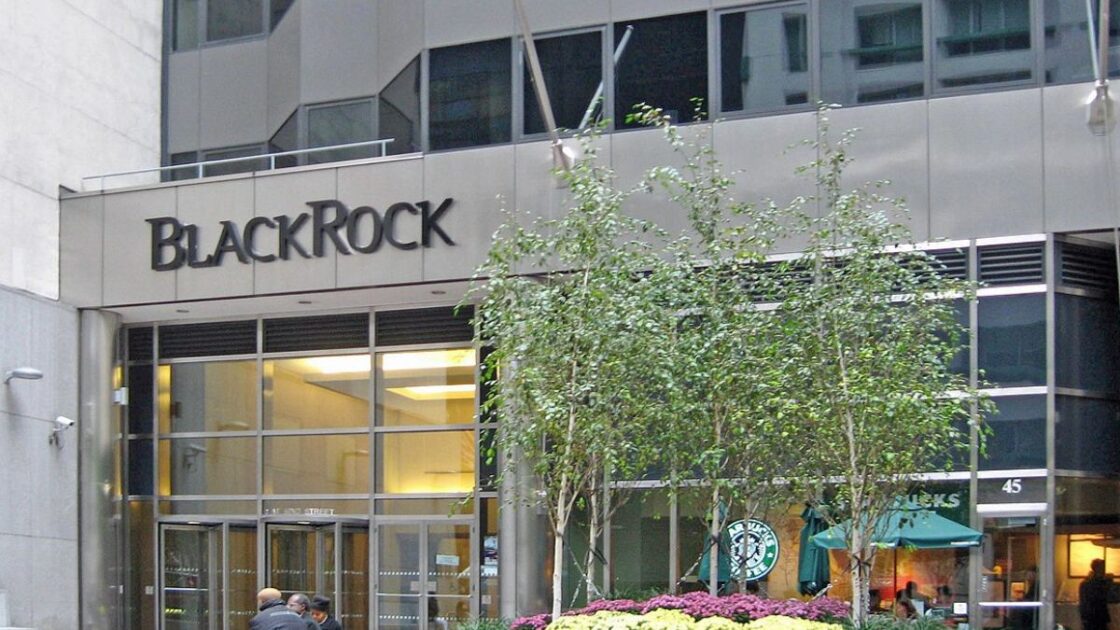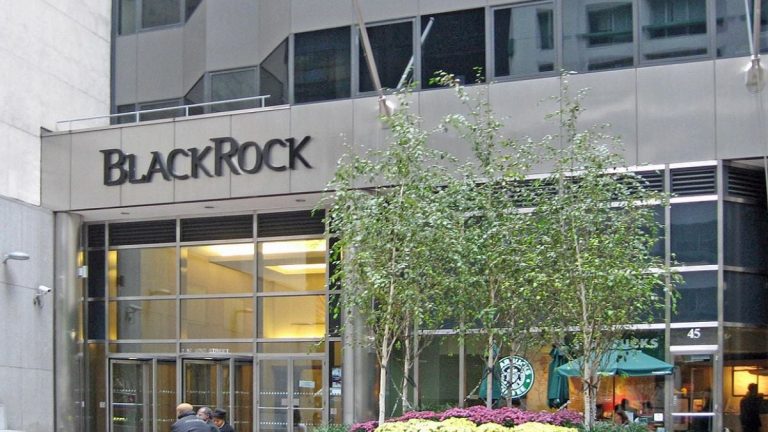opinion

The progressive left has managed to take its ideology and sweep it into every aspect of society, including the world of capitalism and investment. The idea that big companies are responsible for operating within the rules of climate change, sustainability, and social diversity measures has been the status quo of the business world for a few years in the hope that real change will emerge.
Unfortunately, forcing unwarranted change in the name of virtue signaling has done little to promote “sustainability” and “diversity.” In fact, it's proven to be downright bad for business.
Goliath investment firm BlackRock is feeling the pinch of supporting leftist ideology. It's doing what it can to separate itself from what was once a widely welcomed concept that has become controversial.
Visualization
BlackRock, the world's largest money management company, announced plans to lay off 3% of its global workforce. That amounts to about 600 employees that the investment firm claims are part of a typical round of decent-sized layoffs.
However, the timing of these layoffs after a great deal of controversy around ESG investing is questionable.
So what is Environmental, Social and Governance (ESG)? ESG stands for Investing in Environmental Social Management.
The concept is that BlackRock and other firms direct investment dollars (their clients' money) to public companies that use sustainable energy to reduce their carbon footprint or have processes in place to ensure board diversity, to name a few. However, ESG investing, especially for BlackRock, has created a political firestorm and the beginnings of a litigation headache for the company.
RELATED: Businesses, even big ones, get crushed under Biden economy as bankruptcies rise
For example, the state of Tennessee sued BlackRock, alleging that the company underestimated the extent to which environmental, social and governance considerations were taken into account when the company developed investment strategies. To demonstrate that the company is making investment decisions in the best interest of its shareholders to ensure the highest return, BlackRock has begun to show signs of decoupling itself from the ESG dynamic.
In fact, U.S. portfolio managers are no longer required to consider ESG metrics when not using ESG funds. So, what's all the fuss about ESG?
Fiduciary responsibility
The focus on climate change initiatives, sustainability, diversity, and even rules, as a litmus test for investing, many would argue conflicts with the fiduciary responsibility of investment firms. The concept of fiduciary responsibility states that an entity, often an investment company, is obligated to make financial decisions in the best interests of its clients.
When investing, the ideal goal is to invest money in companies that make more money. Unfortunately, for ESG last year, many “green” and “diversified” investments failed to deliver positive returns.
Elon Musk, a longtime ESG critic, explained the dangerous game these companies were playing with clients' money — which includes retirements, 401(k), and more in BlackRock's portfolio:
“The public is being lied to…and I'm mentioning names here: BlackRock, Fidelity…I know you guys, and you should be telling your clients that you're not making optimal decisions in terms of shareholder value because that's what's going on.”
Mr. Musk addressed the precise argument that the state of Tennessee is claiming in its lawsuit. Telling clients that you make investment decisions based on the best possible option for them to return only to attach arbitrary, untested ESG metrics to investments is what normal people call lying.
RELATED: Is Claudine Guy's Resignation the First Battle in the War Against DEI?
Mr Musk even warned that lawsuits were imminent:
“The big companies you hear, BlackRock, Vanguard, all of them, are gearing up for the largest class action lawsuit in the history of class action lawsuits by volume, because 'they're breaking the deal with their clients and not maximizing shareholder value.'
Who are these clients that Elon warns are being deceived by BlackRock in the name of ESG?
Force him
It would be easy to dismiss these large investment companies and their decisions as outside the realm of what affects the average American. This is exactly what companies prefer, we all think.
However, we are all clients of these companies, as many of the accounts held at Vanguard, Fidelity, and BlackRock are the pension and retirement accounts of ordinary Americans. This makes us all unwitting participants in an ideologically driven investment strategy that does not put our future interests front and center.
According to BlackRock CEO Larry Fink, sometimes that's exactly what's needed. He said it himself at an event sponsored by The New York Times:
“You have to enforce behaviors.”
Mr. Fink believes it is his responsibility right As CEO of BlackRock to enforce behaviors he deems appropriate. He did this through ESG metrics:
“If you don’t achieve these levels of impact, your compensation may suffer.”
He went on to provide an example:
“If you don't enforce behaviors whether it's gender or race or however you want to say the makeup of your team, you're going to be affected.”
It sounds like investment blackmail using climate change and diversity as requirements. Are the recent layoffs a sign that Mr. Fink realizes he has not acted in his clients' best interests, or are they merely an attempt to douse the current political and litigation fires surrounding his company?
Now is the time to support and share the sources you trust.
The Policy Insider ranks third on Feedspot's “Top 100 Political Blogs and Websites” list.


